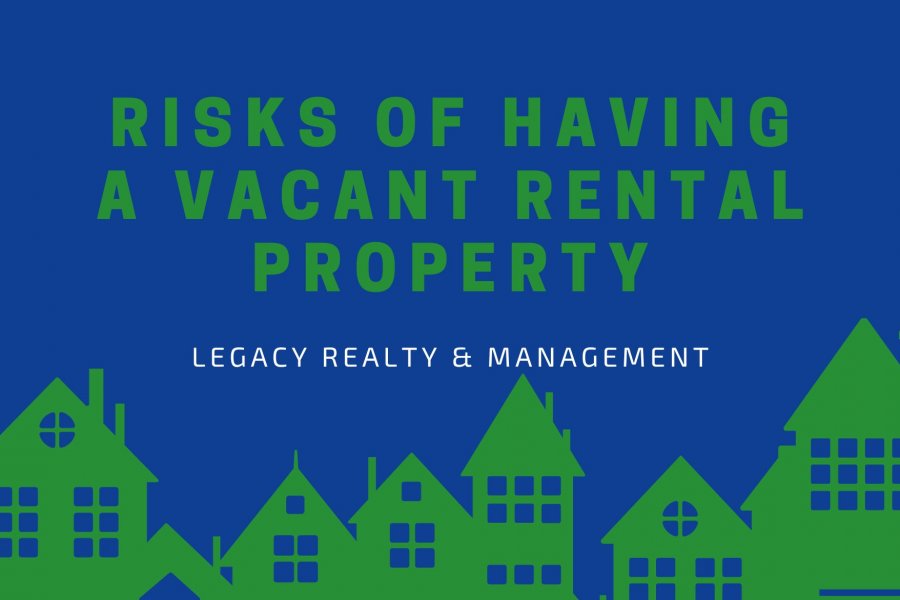
Are you aware of the potential risks that lurk behind a vacant rental property? As a landlord, it's crucial to understand the implications that come with an unoccupied unit.
This article delves into the various risks such as vandalism, theft, and unexpected maintenance costs that could arise. Additionally, we'll explore the financial strain of lost rental income and how it impacts your ROI.
By being well-informed, you can take proactive steps to mitigate these risks, ensuring that your investment remains secure and profitable.
So, let’s navigate through the challenges and solutions together, making your landlord journey a smoother one.
Understanding Risks of Empty Rental Properties: A Simple Guide
Being a landlord is not always easy, especially when you have a rental property sitting empty. An empty property can lose you money and invite a bunch of problems like theft, damage, or even unwanted guests like squatters.
Let’s discuss these common risks and some easy tips on how to keep your property safe and sound even when it's empty.
Theft and Vandalism
Vacant properties are often seen as easy targets by thieves and vandals. The lack of occupancy provides a conducive environment for them to operate without much risk of getting caught.
They could strip away valuable materials such as copper wiring, plumbing fixtures, or appliances, and indulge in destructive activities like spray-painting walls, breaking windows, or causing structural damage.

This not only incurs financial loss but could significantly devalue your property, increase insurance premiums, and extend the period it remains vacant.
What To Do?
- Security Systems: Investing in a comprehensive security system with surveillance cameras, alarms, and motion detectors can act as a significant deterrent and provide real-time alerts.
- Regular Patrols: Engaging a local security firm or a property management company to conduct regular checks can deter unwanted activities and ensure prompt reporting of any incidents.
- Community Watch: Building a good rapport with the local community and neighbors, and informing them about the vacancy can create an extra layer of vigilance and quick reporting of suspicious activities.
- Insurance: Ensuring your insurance policy covers theft and vandalism for vacant properties can provide financial relief in case of such incidents, and understanding the terms can help in making informed decisions.
Squatters
The menace of squatters is a growing concern for landlords. They can illegally occupy your property, causing substantial financial, legal, and reputational damage. Evicting squatters can be a lengthy, costly legal process, and during their stay, they could cause significant damage or engage in activities that could further complicate the eviction and potentially tarnish the property’s reputation.
What To Do?
- Regular Inspections: Conducting frequent inspections can help in identifying squatter activity early, and taking prompt action can mitigate potential damages.
- Legal Counsel: Having a legal advisor familiar with local laws can expedite the eviction process, and being prepared legally can save time and resources.
- Secure Entry Points: Reinforcing doors, windows, and other entry points with sturdy locks and security screens can prevent unauthorized access and deter squatters.

Fires
Vacant properties are susceptible to fires from neglected maintenance issues or malicious intent like arson. A small spark from faulty wiring or a gas leak can turn into a raging fire, causing catastrophic damage, making your property uninhabitable, and incurring massive financial loss.
What To Do?
- Electrical and Gas Systems: Having a professional inspect and properly shut down these systems can prevent potential fire hazards.
- Fire Alarm Systems: Installing monitored fire alarm systems can provide immediate alerts to local fire departments, minimizing potential damage.
- Fire Extinguishers and Sprinklers: Having these fire prevention systems in place can provide an additional layer of safety and potentially save the property from extensive fire damage.
Water Damage and Mold
Water damage, often from leaking pipes or roofs, can go unnoticed in vacant properties, leading to extensive damage over time. The damp environment is conducive for mold growth, which is a serious health hazard and can be incredibly expensive to remediate. Besides, the potential legal liabilities from mold exposure could be substantial.
What To Do?
- Regular Maintenance: Routine maintenance checks by professionals can help in identifying and fixing leaks before they escalate into major problems.
- Water Sensors: Modern water sensors can provide immediate alerts in case of water leaks, enabling prompt action to prevent further damage.
- Ventilation: Keeping the property well-ventilated can prevent dampness and the subsequent mold growth, maintaining a healthier environment.
- Professional Inspections: Engaging professionals to inspect and remediate any water damage or mold can ensure the property remains safe and habitable, and ready for occupancy at the earliest.

What to Do Next: Easy Steps for Landlords After Trouble
Experiencing any of the discussed risks can be stressful for landlords. However, knowing the right steps to take afterward can help mitigate the damage and prevent future occurrences. Here are some steps landlords should consider:
Document Everything
- Take photos and videos of all damages as soon as they are discovered.
- Write down a detailed description of what happened, including dates and any other relevant information.
Contact the Authorities
- Report theft, vandalism, or squatter occupancy to the police.
- Obtain a copy of the police report for your records.
Notify Your Insurance Company:
- Report the incident to your insurance company as soon as possible.
- Provide them with all the necessary documentation to process your claim.
Secure the Property:
- Repair any broken windows, doors, or other points of entry to prevent further incidents.
- Change locks and improve security measures like installing alarms or surveillance cameras.
Seek Legal Advice:
If dealing with squatters or other legal issues, consult with an attorney to understand your rights and the proper legal procedures to follow.
Consider a Property Management Company:
If managing the property becomes overwhelming, consider hiring a property management company to handle the day-to-day operations and ensure the property remains secure, and that they attract great tenants.
Bottom Line
Navigating the waters of property management, especially with vacant properties, can indeed present a whirlpool of challenges. However, with the right knowledge and a proactive stance, these hurdles can be surmounted.
Engaging a seasoned property management company can be a game-changer in safeguarding your investment. Legacy Realty Management, with its expertise, is well-equipped to handle the intricacies, ensuring your property remains secure, well-maintained, and ready for tenancy.
Entrusting your asset to Legacy Realty Management not only alleviates the stress but sets a solid foundation for a rewarding landlord experience. Your peace of mind and the safety of your property is just a call away with Legacy Realty Management.
